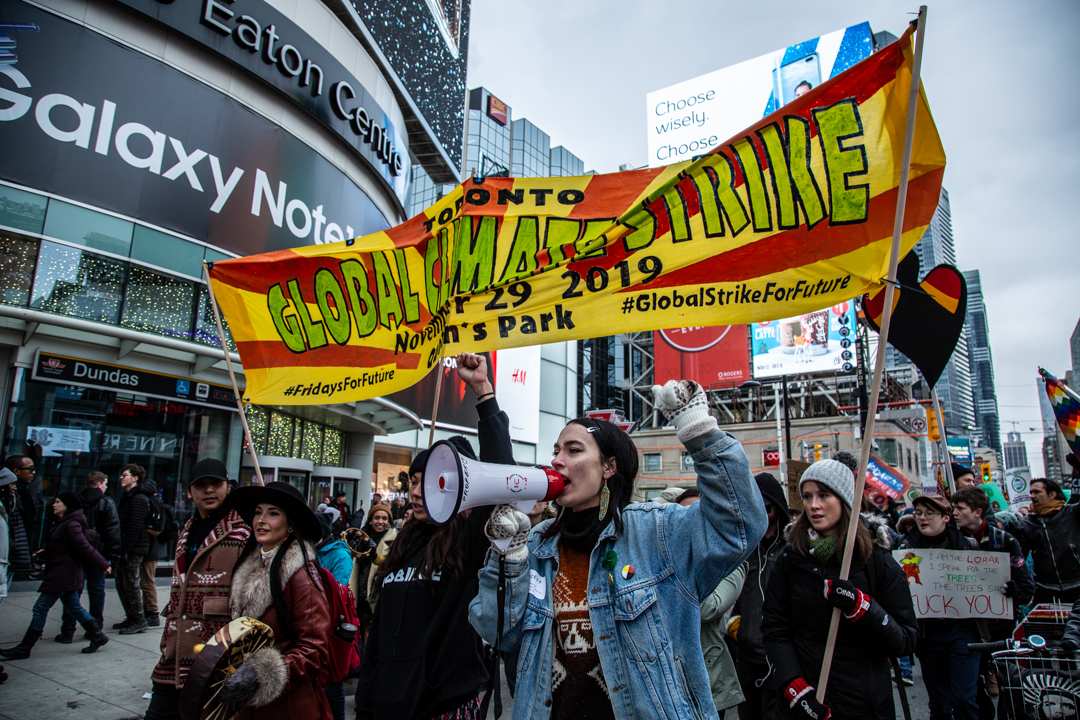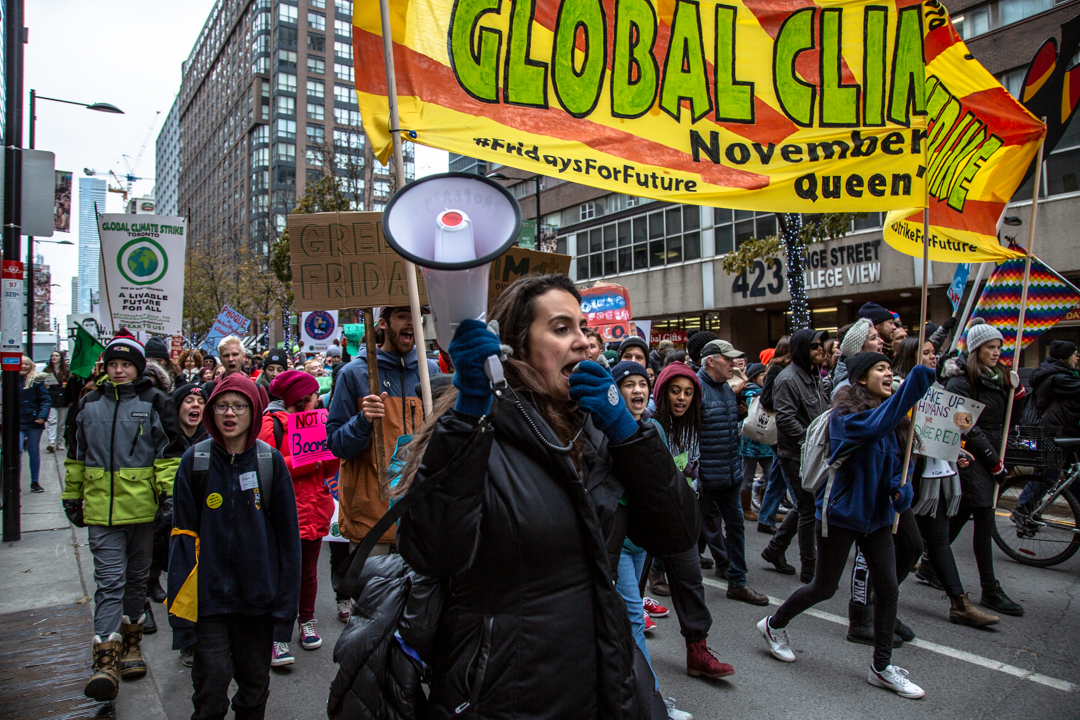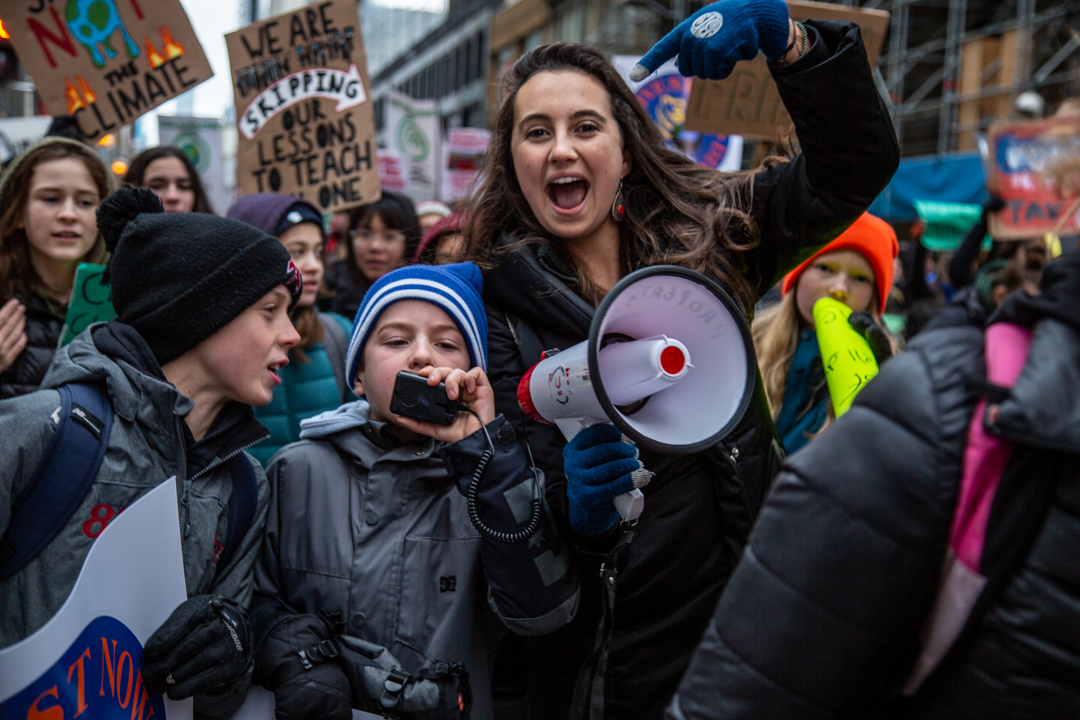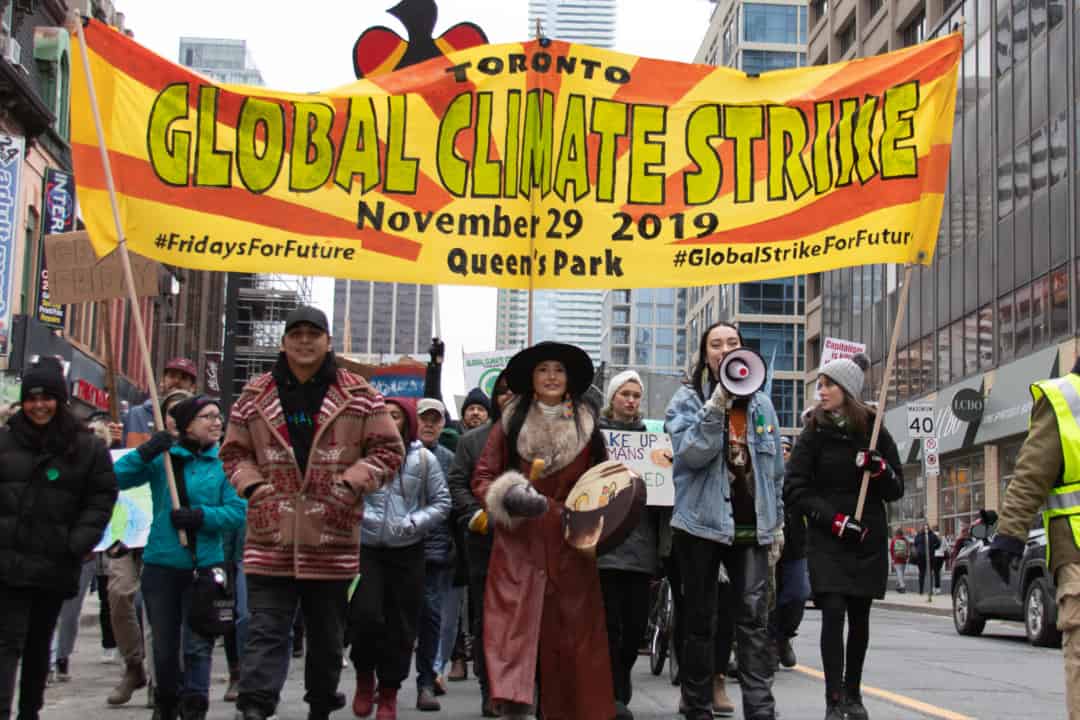On Black Friday, Canada’s biggest shopping day of the year, hundreds of climate protestors took to the streets as a part of the Fridays for Future movement for action in response to the climate crisis, gathering in front of Queen’s Park for a rally before marching to City Hall. The strike also comes a few days before the United Nations Climate Change Conference (COP25). Leaders will meet on December 2 in Spain to submit climate action plans ahead of the 2020 deadline, in accordance with the 2015 Paris Agreement.

DINA DONG/THE VARSITY
“We are striking today, on Black Friday, because we want to call out the system that forces us to live unsustainable lives. Because many of us don’t have the time, the money, or the option to live another way,” said Fridays for Future Toronto Chapter Head Allie Rougeot to the crowd. In her speech, she affirmed Fridays for Future’s commitment to Indigenous sovereignty and called on political leaders to take drastic climate action at the COP25 conference.
“We are demanding that in Spain, they do their jobs of protecting us and working for us.”
One theme of the strike was criticizing the Royal Bank of Canada’s (RBC) investment in fossil fuels, with marchers placing “Divest RBC” stickers on the storefront of the bank as they passed by it. Volunteers stood in front of the bank holding a banner that read, “Canada’s #1 Fossil Bank. Divest Now!”
In an interview with The Varsity, Rougeot reflected on the Black Friday strike, held over two months after the Global Climate Strike in Toronto, which saw the participation of around 15,000 people. “The turnout is definitely smaller [this time], but we expected a smaller turnout. What I really like is how much mightier it is.”
She described the central tenets of the strike and Fridays for Future as “a just transition for workers, Indigenous rights, and marginalized communities being included and us fighting for them.”
Rougeot, a U of T student, criticized the university’s “horrific” investment in fossil fuels. “As much as I want to be proud of my school, I will never be proud of my school until they divest.”

DINA DONG/THE VARSITY
Similar to the Global Climate Strikes that took place in September, young people were particularly represented in this strike, with groups of middle- and high-school students striking together. Dunbarton High School student Devin Mathura commented on his presence at the strike with a large group of classmates: “We have to enforce the fight for climate change and [the fight] to declare a climate emergency by not going to school because why should we get an education when there’s not going to be a future for us?”

DINA DONG/THE VARSITY
Seventeen-year-old climate activist Abonti Nur Ahmed spoke at the rally, criticizing the elitism of the climate movement. “I don’t remember the last time someone asked me how it was affecting my community and how it’s affecting the people that I know,” Ahmed said to the crowd.
In an interview with The Varsity, Ahmed said that the community she was representing was a politically disenfranchised one: “They don’t know how to fight for their own rights.” Her speech advocated for intersectionality in the climate movement, which she defines as not putting the blame on individuals, but rather understanding that systemic change needs to come before placing any burdens on already marginalized communities.
She hopes to inspire people to learn about intersectionality for themselves. “When I was speaking, the only thing that was in the back of my mind [was]: ‘I hope that people hear what I say and decide to go look up what intersectional climate change means,’ because I can say everything I want, but it has to start with the person’s passion.”


